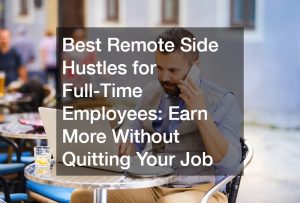In an age where the job market is competitive and highly diverse, building career resilience will help you learn to adapt to new challenges throughout your working years. It means the difference between learning from setbacks and letting failure get you down. And for many of the working class, it will help you achieve your goals even without having the advantages of the privileged.
Building career resilience can start as early as your school years before you even set foot in an interview, but it can also start when you’ve already had a few jobs under your belt. Either way, it is an important skill that everyone with a career needs, and here are some of the best ways to start building it.
1. Embrace lifelong learning
Learning doesn’t stop when you’re handed your diploma on stage. Even if you’re already ten years into your career, you never truly stop learning new things or building your skills–the only difference is that you’re not in a classroom to do it.
Continuing to build your knowledge and enhance your skills is a crucial aspect of career resilience and ‘staying in demand’. There are many ways you can do this, like enrolling in SSG-supported courses, which are designed to provide industry-related training to everyone from beginners to advanced professionals. Alternatively, you can also attend seminars, professional development workshops, read books, listen to podcasts, and so much more.
2. Don’t stop networking
Having a robust professional network can help you stay informed about news in the industry, which is another way to expand your knowledge. More than that, it can also serve as a source of career opportunities that can help you switch jobs if the need arises. That said, start networking with colleagues, industry experts, and other like-minded individuals before you even finish college. Don’t wait until you’re in a pinch until you start cultivating good professional relationships with others.
There are a lot of ways you can network, and depending on your needs or preferences, what works for others may not work for you. Find the best method that fits your own needs, be it participating in industry events, using social media, joining professional clubs, or connecting with other alumni from your alma mater.
3. Seek feedback
Gaining insight into your performance from another person’s perspective is an excellent way to improve yourself. So, don’t shy away from constructive criticism, especially if it is being given by someone who is highly credible to do so. Listen to what your supervisors or colleagues are telling you and use their feedback to improve your weaknesses and further heighten your strengths. Better yet, actively seek feedback from the people that you work closely with, and welcome what they have to say with an open mind and zero resistance.

4. Set yourself apart from work
People think that pouring your entire being into your career will help you become successful. While this is true for some people, having no boundaries between your work and your personal life will ultimately make you miserable, burnt out, and unhealthy.
Part of career resilience is having a positive work-life balance. You don’t have to be married to your job to be successful. What you need is to have enough time for both your career and other things that matter to you, including your family, friends, hobbies, and, more importantly, yourself.
5. Focus on what you can control
Obsessing over the things you cannot control will only set you up for endless amounts of frustration, so start learning how to distinguish between the things that you can and cannot control. Not only will this save you from unnecessary amounts of stress, but it’s also an excellent way to build responsibility–something that will make you attractive in the eyes of employers.
For instance, if the culture in your workplace is more negative than positive, focus on doing what you can to avoid contributing to the poor culture. While you cannot take charge of what your co-workers do in the workplace, you can keep yourself away from the negativity by controlling your own behaviour and treating others how you’d want them to treat you. However, you have to accept the fact that some people won’t reciprocate the same kind of positive treatment, and accepting this early on in your career will help you become more resilient.
Conclusion
Sometimes, our careers will not go the way we want them to, and that is just the truth of life. While there are too many variables that are out of control, we can learn how to stay on top of our game by building career resilience and continuing to do so until we retire.







